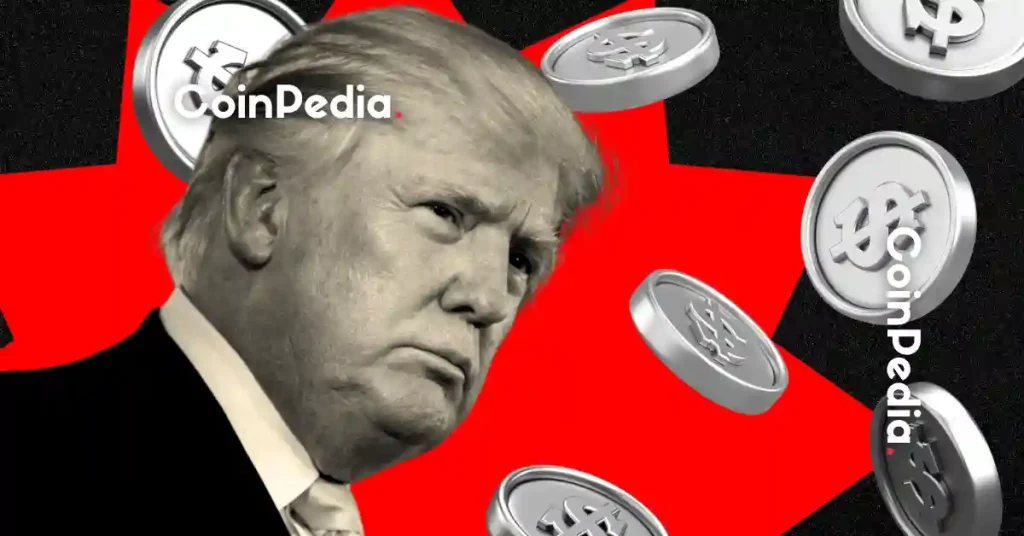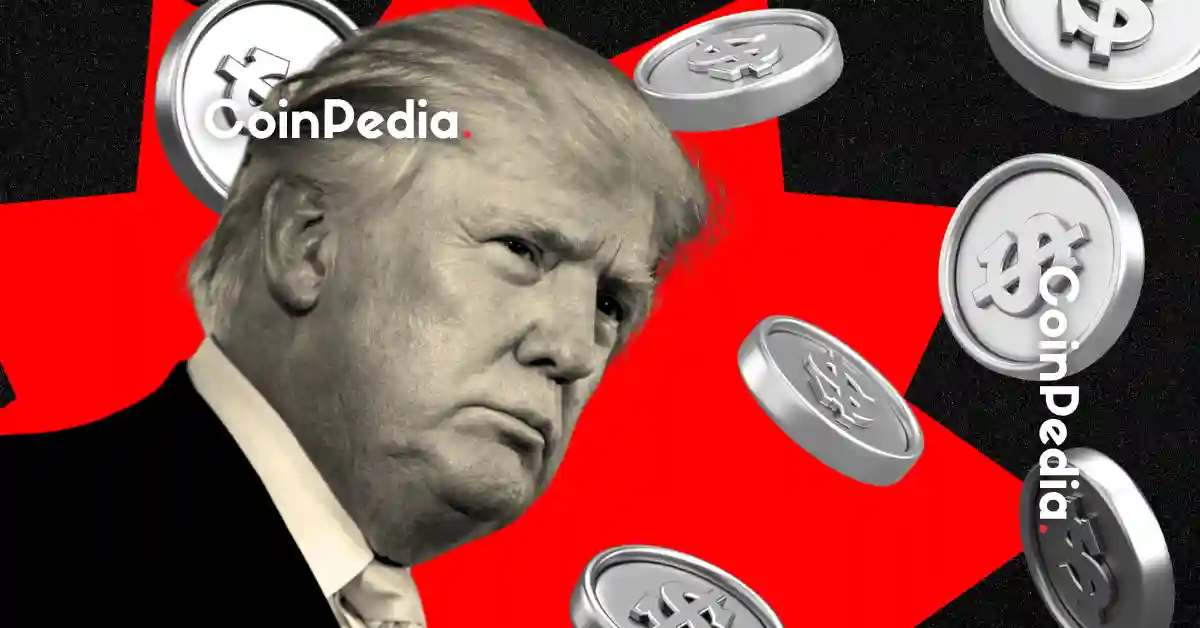
The year 2025 has been a rollercoaster for both the cryptocurrency market and the political landscape, particularly in the United States. Bitcoin, the world’s most prominent cryptocurrency, has found itself at the center of a peculiar paradox: its value has surged, creating thousands of new millionaires, while former President Donald Trump’s personal crypto fortune has plummeted. This juxtaposition raises intriguing questions about the interplay between politics, policy, and the decentralized world of digital assets.
The Bitcoin Bonanza: A Surge in Wealth
The first half of 2025 witnessed an unprecedented surge in Bitcoin’s value, driven by a confluence of factors. Over 26,000 new Bitcoin millionaires emerged, a testament to the cryptocurrency’s growing appeal as a store of value and a hedge against economic uncertainty. This surge was not merely a result of retail investor enthusiasm but was also fueled by significant institutional investment.
Institutional Embrace: A Sea Change
Traditional financial institutions, once skeptical of cryptocurrencies, began to view Bitcoin as a legitimate asset class. BlackRock, one of the world’s largest asset managers, significantly increased its crypto holdings, injecting billions into the market. This influx of institutional money lent credibility to Bitcoin and drove up demand, consequently boosting its price. Other major financial players followed suit, recognizing the potential of digital assets to diversify their portfolios and hedge against inflation.
Bitcoin as a Safe Haven: Navigating Political Uncertainty
Trump’s return to the White House introduced a degree of uncertainty into global financial markets. His policies, often characterized by unpredictability and a willingness to challenge established norms, led some investors to seek refuge in alternative assets like Bitcoin. The narrative of Bitcoin as a decentralized, apolitical store of value gained traction, attracting investors seeking to hedge against potential economic disruptions. This shift in perception further propelled Bitcoin’s price upwards, as investors flocked to the digital currency in search of stability amidst political turmoil.
Retail FOMO: Riding the Wave
As Bitcoin’s price soared, a sense of “fear of missing out” (FOMO) gripped retail investors. Stories of overnight riches fueled a frenzy of buying activity, further propelling the price upwards. This influx of new money, coupled with the existing holders’ reluctance to sell, created a supply squeeze that exacerbated the price increase. The retail investor boom was particularly notable, as it brought a new demographic into the crypto space, eager to capitalize on the perceived opportunities.
Trump’s Crypto Contradiction: A Portfolio Plunge
While Bitcoin’s rise enriched thousands, President Trump’s personal crypto portfolio experienced a dramatic decline. Reports indicate a staggering 78% drop in value within the first six months of 2025. This raises several critical questions: How could the president of the United States, seemingly so closely tied to the crypto narrative, suffer such significant losses amidst a bull market? Was it simply bad timing, poor investment choices, or something more sinister at play?
Meme Coin Mayhem: Riding the TRUMP Wave
Despite his crypto portfolio taking a hit, Trump’s connection to the crypto world seems to be more complex than just personal holdings. The emergence and popularity of Trump-themed meme coins, such as “$TRUMP,” adds another layer to the story. While some wallets made millions off these coins, the vast majority of holders, often small retail investors, lost money. This dynamic raises concerns about potential manipulation and the ethical implications of a public figure being associated with such volatile and speculative assets.
Regulatory Roulette: Navigating Shifting Sands
Trump’s administration signaled intentions to introduce regulatory changes to the cryptocurrency market. Regulatory uncertainty can spook investors, leading to price volatility and potential losses. If Trump’s policies inadvertently stifled innovation or created an unfavorable environment for crypto businesses, it could have negatively impacted his own portfolio, especially if his investments were concentrated in projects sensitive to regulatory changes. The administration’s stance on cryptocurrencies remained a topic of intense debate, with some arguing that the regulatory environment was becoming increasingly hostile to digital assets.
Corruption Concerns: A Cloud of Suspicion
Allegations of “Trump-style crypto corruption” raise serious ethical questions. Critics argue that his involvement in the crypto space creates avenues for potential conflicts of interest. The concern is that his policies could be influenced by personal financial interests, potentially benefiting specific crypto projects at the expense of the broader market or the public good. These allegations have cast a shadow over the crypto industry, prompting calls for greater transparency and accountability.
The Shifting Sands of Bitcoin Millionaires: A Volatile Landscape
Beyond the contrasting fortunes of new millionaires and Trump’s portfolio, the overall number of Bitcoin millionaires has seen significant fluctuations since Trump’s return. Reports indicate periods of decline, with tens of thousands of addresses losing their millionaire status, followed by periods of recovery and growth. This highlights the inherent volatility of the cryptocurrency market and its sensitivity to political and economic events.
The Impact of Trump’s Policies: A Double-Edged Sword
Trump’s policies, while intended to stimulate the economy, may have had unintended consequences for the cryptocurrency market. His focus on deregulation and tax cuts could have fueled speculation and contributed to Bitcoin’s initial rise. However, his trade policies and unpredictable pronouncements may have also created economic uncertainty, leading to periods of market correction and a reduction in the number of Bitcoin millionaires. The interplay between these policies and the crypto market remains a subject of intense scrutiny.
The Long-Term Implications: A Crypto Ecosystem Under Scrutiny
The events of 2025 have profound implications for the future of the cryptocurrency market. The rise of Bitcoin millionaires, coupled with the questions surrounding Trump’s involvement, have thrust the industry into the spotlight, prompting calls for greater regulation and oversight. The long-term impact will depend on how policymakers navigate the complex interplay between innovation, investor protection, and the potential for abuse. The crypto ecosystem is at a crossroads, with the need for balance between fostering innovation and ensuring market stability.
Conclusion: A Crypto Conundrum
The story of Trump and Bitcoin in 2025 is a complex and multifaceted one. It is a tale of fortunes made and lost, of regulatory uncertainty and ethical concerns, and of the growing influence of politics on the decentralized world of cryptocurrency. While Bitcoin continues its journey towards mainstream adoption, the events of 2025 serve as a reminder of the inherent risks and opportunities in this rapidly evolving landscape. The paradox of Trump’s apparent crypto struggles amidst a booming market underscores the need for careful consideration, informed decision-making, and a healthy dose of skepticism in the world of digital assets. The future of Bitcoin, and the fortunes it creates, will depend on how these challenges are addressed. The crypto ecosystem must evolve to meet these challenges, ensuring that the benefits of digital assets are realized while mitigating the risks associated with their volatility and the potential for abuse.





